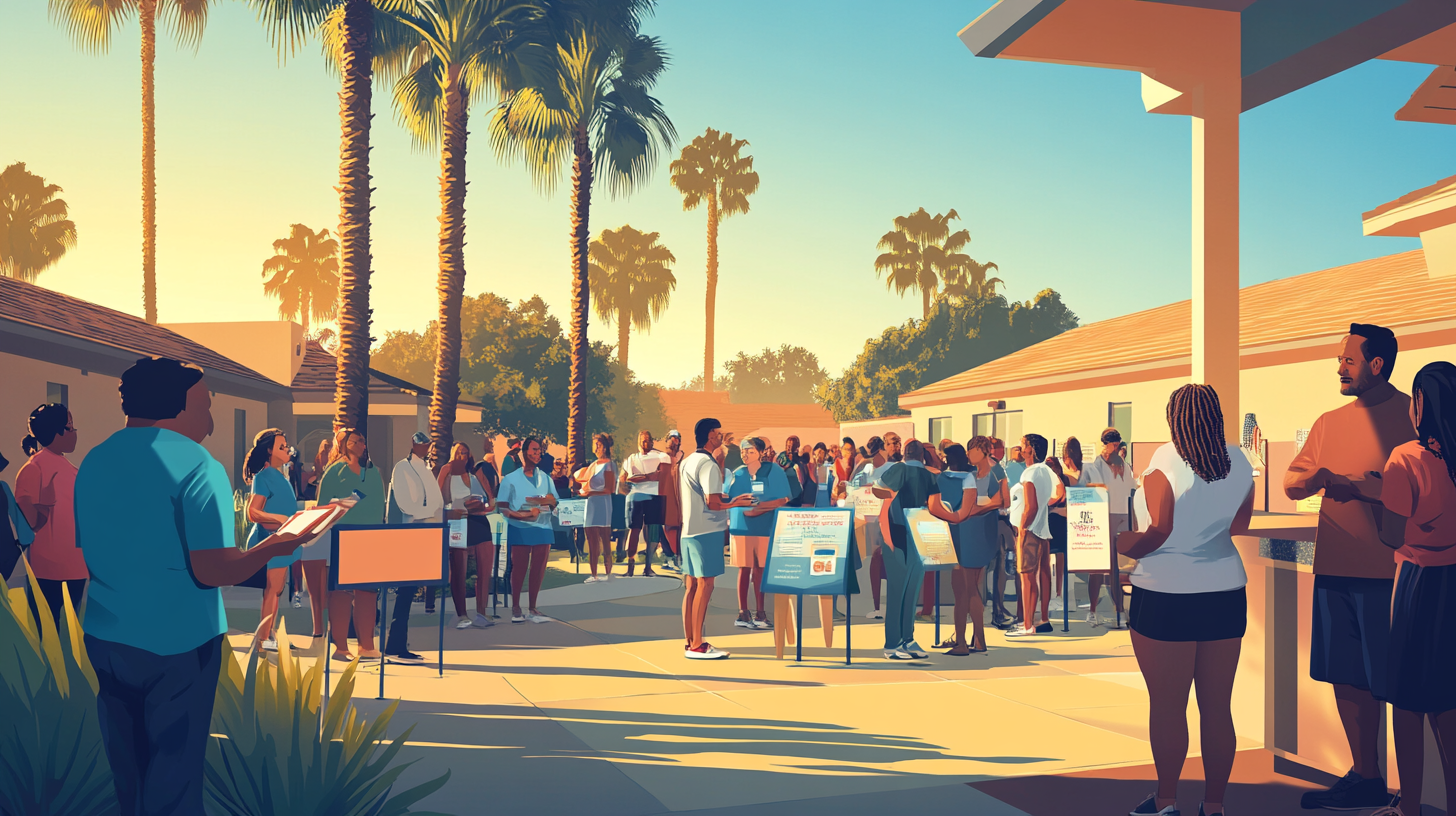Harlingen Launches Study into Trail; Commission Mulls Parkwood Concerns
Harlingen city officials have embarked on an exploratory study of a proposed trail system aimed at enhancing recreational and transportation options for Valley residents. Meanwhile, the city commission is giving due consideration to growing concerns from Parkwood neighborhood residents over potential impacts. This dual focus underscores a broader initiative to balance community development with local conservation efforts in the Rio Grande Valley (RGV) region.
Trail System Study: A Vision for Connectivity
The proposed trail, which could weave through various neighborhoods and natural landscapes, is envisioned to boost local tourism and provide more recreational spaces in South Texas. By offering additional avenues for biking, walking, and jogging, the initiative hopes to promote healthier lifestyles and support eco-friendly transportation.
City planner Marco Gonzalez highlighted the importance of creating new trails as part of Harlingen’s long-term development goals. “This proposed trail system represents a commitment to enhancing Harlingen’s connectivity and environmental conservation efforts. We’re focusing on creating access points for all while preserving our unique Valley landscapes,” Gonzalez expressed.
Local Impact: Boosting Economy and Community Well-Being
For Valley residents, the development of such trails could prove economically beneficial. Studies in comparable regions have shown that improved accessibility to green spaces can attract new visitors, encourage local spending, and even increase property values. For a region still grappling with economic disparities, such gains could be significant.
Emma Reyna, a local business owner, welcomes the proposed trail project. “It’s a chance to rebuild connections between our scattered communities and boost local businesses by drawing more visitors. I believe it will also provide healthier lifestyle options right at our doorstep,” Reyna stated.
Parkwood Concerns: Weighing Development Against Preservation
Not everyone is on board with the proposed trail, however. Residents of the Parkwood neighborhood have raised issues, particularly about how the trails might affect natural habitats and disrupt the area’s tranquility. These concerns emphasize the importance of thoughtful planning that considers environmental impacts and resident sentiments.
“While we recognize the potential benefits of new trails, we must ensure these do not come at the expense of Parkwood’s environment and existing quality of life,” argued Parker Simmons, a community advocate from Parkwood. His sentiments are echoed by others worried about noise levels, traffic, and environmental degradation.
Reflecting on Previous Initiatives
The debate surrounding the Harlingen trail mirrors previous local efforts to expand recreational spaces while preserving cultural and ecological integrity.
In past projects, such as the Arroyo Colorado Restoration Initiative, cooperation between city planners, environmentalists, and community members demonstrated the potential for balanced development. Drawing lessons from these experiences can provide valuable insights into navigating current challenges.
Future Implications: Community Inclusion and Sustainability
Efforts to ensure that future projects align with community needs will likely hinge on fostering open dialogues among all stakeholders. The city commission has expressed its intention to host public hearings and workshops to gather diverse perspectives and cultivate an inclusive decision-making process.
Andy Keller, a member of the commission, underscored the importance of this approach. “Listening to Valley residents is crucial. We believe well-rounded engagement leads to stronger, more sustainable community projects,” Keller remarked.
Balancing Diverse Needs
Striking the right balance between development and conservation requires transparent communication and careful planning. Enlisting the expertise of environmental scientists and urban developers who understand the delicate ecosystems unique to the Rio Grande Valley could yield practical solutions.
Moreover, maintaining impartiality and openness when considering proposals will help ensure that projects serve both current and future generations. The Harlingen trail study symbolizes a step toward a more connected and sustainable future in South Texas.
Community Resources and Next Steps
Valley residents interested in learning more about the trail study or those wishing to express their views on the Parkwood concerns can contact the Harlingen city planning office. Details on forthcoming public hearings will be made available through local news outlets and the city’s official website.
The conversation surrounding the trail initiative within Harlingen and the broader RGV region exemplifies an opportunity to realize shared goals of connectivity and sustainability. By aligning development strategies with community interest, such endeavors promise to enhance quality of life while preserving the unique heritage and environment cherished by all in the Valley.







